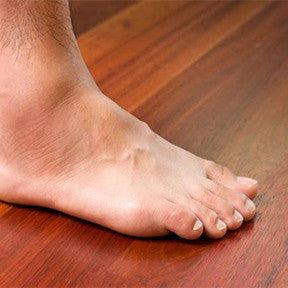
Mar 17 , 2017
2 Comments
Moving with diabetic nephropathy
What is diabetic nephropathy?
Diabetic nephropathy is a leading cause of chronic kidney disease and end stage renal disease. Diabetes is defined as a chronic condition where the body either does not make enough insulin or cannot use normal amounts of insulin properly. A high blood sugar level for longer duration may be the major cause of Kidney disease. Kidney disease caused by diabetes is called as diabetic nephropathy. In 2015, globally, 415 million adults were effected with diabetes. About 30 percent of patients with Type 1 diabetes and 10 to 40 percent of those with Type 2 diabetes eventually will suffer from kidney failure.

Impact on kidneys
It has a direct impact on the development of chronic kidney disease (CKD) and end stage renal disease (ESRD). Raised sugar will damage the minor blood vessels in the body. The damaged kidneys, fail to clean blood properly and the body will retain more water and salt, which results in ankle swelling. This may build up waste materials in blood and also have high protein in urine. Diabetes also may cause damage to nerves in body which can cause trouble in emptying bladder. The pressure from full bladder can back up and injure the kidneys. Also, if urine remains in bladder for a long period, one can develop the rapid growth of bacterial in urine which cause infection.

Early signs of kidney disease in patients with diabetic nephropathy
- Increased excretion of albumin in the urine.
- Micro albumin in urine.
- Ankle swelling
- Usage of the bathroom more at night
- Your blood pressure may get too high.
- Metallic taste in mouth/ ammonia breath.

Late signs of kidney disease in patients with diabetic nephropathy
- Blood urea nitrogen (BUN) levels will rise.
- Blood level of creatinine levels will rise.
- Albumin/protein in the urine.
- Having foaming or bubbling urine or blood in urine.
- Patient may experience nausea, vomiting, a loss of appetite, weakness, increasing fatigue, itching, muscle cramps (especially in your legs) and anemia (a low blood count).

When to start yearly testing?
As a person with diabetes, one should have blood, urine and blood pressure checked at least once a year. This will lead to better control of kidney disease and early treatment of high blood pressure and kidney disease. Maintaining control of diabetes can lower your risk of developing severe kidney disease.
Type 1 diabetes: After one have had diabetes for 5 years.
Type 2 diabetes: When one diagnosed with diabetes.

How diabetic nephropathy is prevented and treated?
EARLY PREVENTION:
The best part is that diabetes, as well as CKD, is largely preventable. Education and awareness of the risks of diabetes and a healthy lifestyle, accepting traditional knowledge of Ayurveda, including proper nutrition and exercise, can significantly help in preventing diabetes and kidney disease.
Kidneys will work healthier and long lived if patient:
- Keep Control on diabetes
- Keep Control on high blood pressure
- Keep Control on problems for urinary tract infections
- Avoid any medicines that may cause impair kidney function and cause kidney damage(specifically over-the-counter pain medications/NSAIDS)

EARLY TREATMENT
Ayurvedic Ways to restore kidney functioning and Avoid Dialysis
- The doctor, will plan the treatment with patient. Thing to retain in mind for keeping kidneys healthy is controlling diabetes, high blood pressure in conjunction with an anti-diabetic and nephron-preventing/corrective ayurvedic treatment and following renal diabetic diet. Restricting protein, Sodium, Phosphorus, Calcium, Potassium in diet also might be helpful.
- The doctor, will offer the treatment to restore kidney functioning and avoid dialysis. The treatment will not avoid dialysis but also prevent further damage of the neurons.The herbs like Boerhavia diffusa, Tinospora cordifoliya, Nelumbo nucifera, Moringa oleifera and Hemidesmus indicus, Coriandrum sativum, Carica Papaya, Cichorium intybus, Pterocarpus santalinus, Butea monosperma, Albizzia lebbeck, Rheum emodi, Solanum nigrum helps significantly prevent deterioration of kidneys function parameters like serum creatinine, blood urea, serum uric acid, serum proteins, serum albumin and urine output and histopathological picture (cellular integrity, architecture). These herbs are excellent to revive kidney failure and lower down swelling, reduce volume of accumulated fluid and thereby increasing the chances of revival of kidneys.

Neeri KFT, contains all these herbs. The kidney patient responds within one month of regular consumption of this drug in the dosage of:
Adults (Men and women): 3 teaspoonful thrice a day.
Children (3-6 years): ½ teaspoonful twice a day.
Children (7-12 years): 1 teaspoonful twice a day or as directed by the physician.

References:
Diabetes care:http://care.diabetesjournals.org/content/28/1/164.
National kidney foundation: https://www.kidney.org/atoz/content/diabetes.
Advances in Ayurvedic Medicine; RH Singh, K N Udupa, 2005.
Pharmacology on line 2: 698-706, 2011.
Experimental & Toxicologic pathology 65, 335-339, 2013.
Nephrology, 9, 142-152, 2004.
J.biochem Tech, 3(4), 339-343, 2012.
Chem. Pharm. Bull 31(8) 2762-2768, 1983.
- Ethano Pharmacol. 115, 89-95, 2008.




2 Comments
Neuropathy food
Sir,
I am suffering from diabetes since 15 yrs my English medicines like (duotrol & nervigen) the glucose levels is not maintained properly. Please advice me which tablet to take IME9 or BGR 34. Should i discontinue the English medicine or i need to take along with it.
Regards
Manchuvaru Rathan Reddy